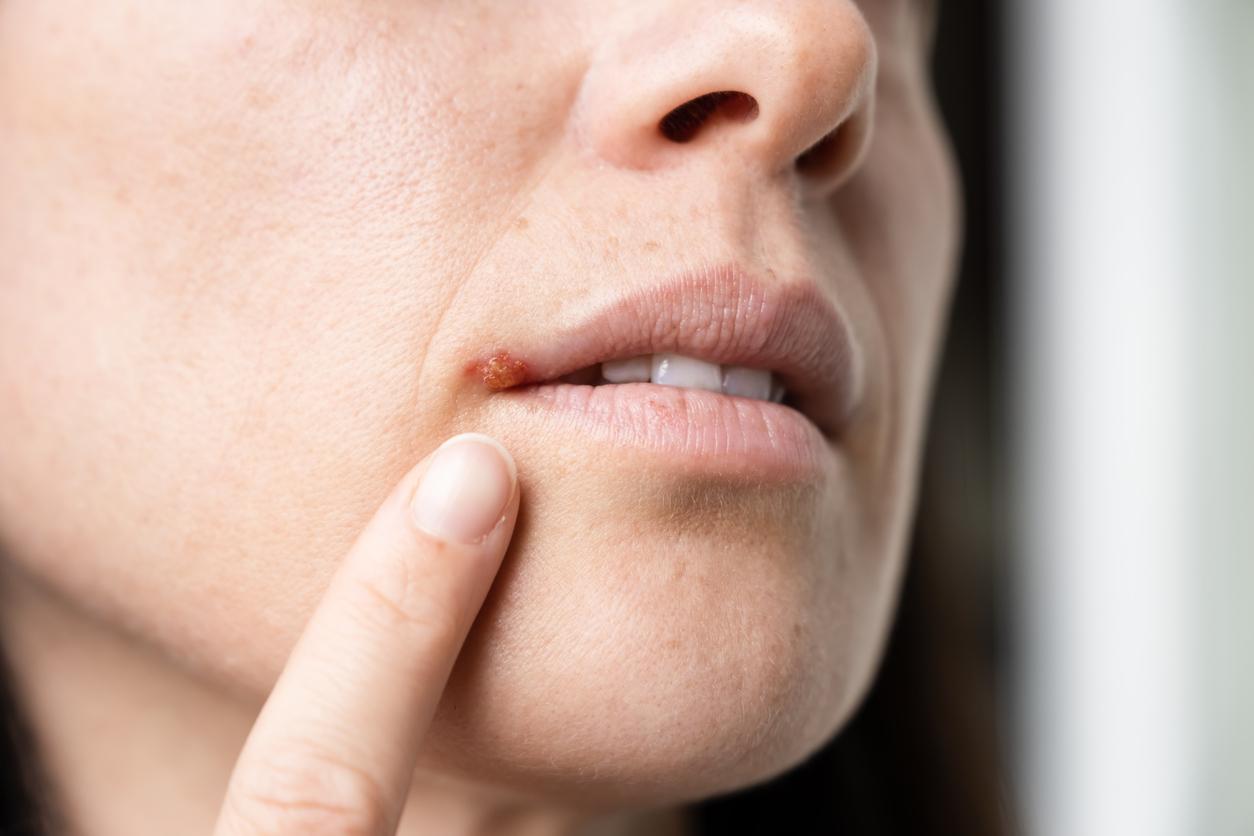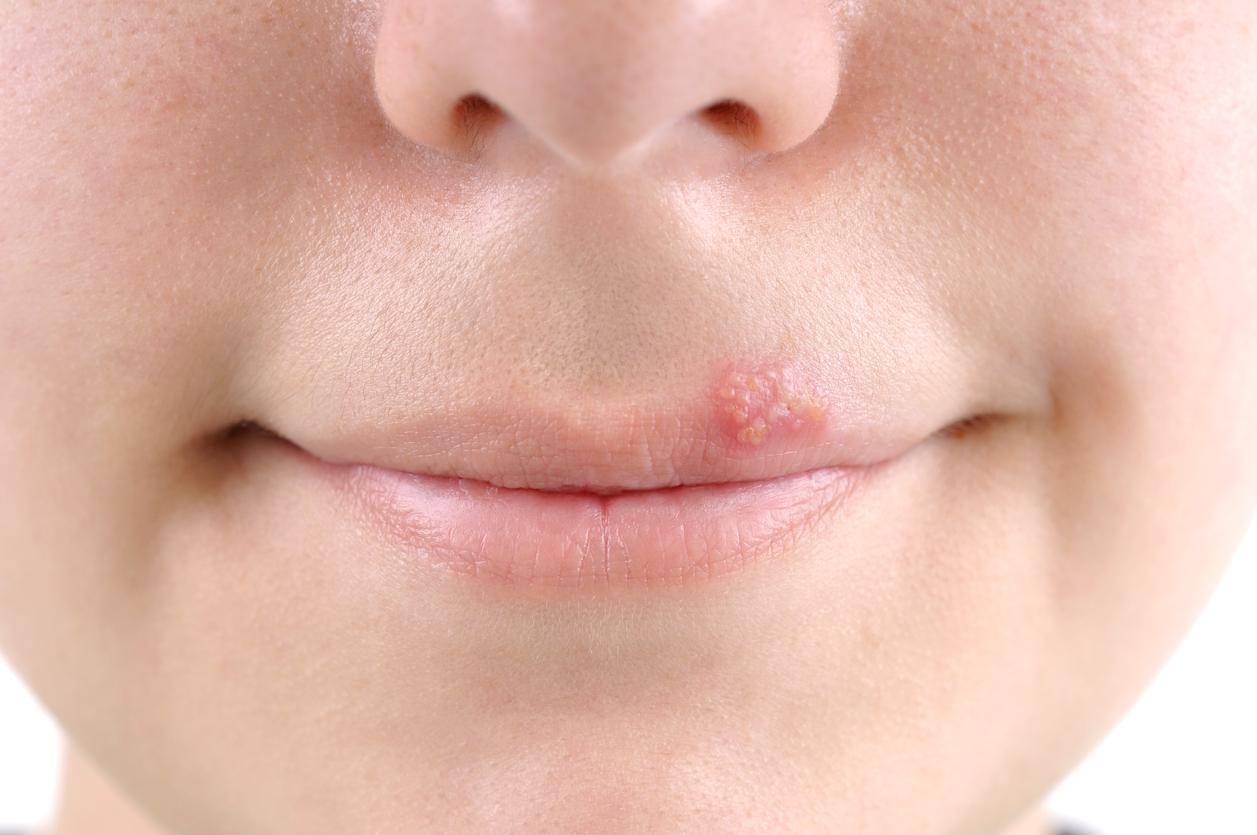Genital herpes is mainly caused by the virus Herpes simplex of type 2, but also more and more often by theherpes type 1, responsible for the cold sore. Those virus present the particularity of being introduced through the skin and mucous membranes to reach the nerves and then crouching in the relays formed by the ganglia. Until the moment when, thanks to a weakening, stress but also fatigue, the period of the rules, a sudden “excess” of sexual relations or, on the contrary, their absence, the weakening of the system, they wake up and go the other way, from the ganglia to the skin. Hence these recurring and unpredictable crises.
Burning and stinging are the most troublesome
The lesion typically looks like a clump of a gallbladder. But if we often see small erosions, we never see the blisters. On the other hand, pain, tingling, sensation of electric shock are very characteristic of this infection. Because the virus travels along the nerves and causes their inflammation (neuritis). We can also present a fever or pseudo-sciatica, with sensation of cramps and pain in the thighs in case of herpes in the buttock.
It’s a contagious infection
The transmission takes place mainly during genital and oral sex. But the first crisis can occur 10 years after an unnoticed contamination. So no need to immediately think of an infidelity of his spouse. The virus can also pass during masturbation if the hand has been contaminated by contact with an infected area. Mother-to-child transmission can also occur during childbirth. In the event of a history of genital herpes in the mother-to-be or the father-to-be, it is necessary to speak to the doctor who follows the pregnancy. Antiviral therapy may be indicated.
The first attack occurs a fortnight after the contaminant report. Then, 90% of people experience episodic seizures, with less than 6 relapses per year. The disease can also stop for a few years and then resume. During the first contamination (called the primary infection), the lesions are often very painful. “Because the body has not yet manufactured antibodies to counter the virus”, explains Dr. Jean-Marc Bohbot, infectious disease specialist, andrologist (Institut Alfred-Fournier, Paris). Then, the pain is variable according to the people and according to the attacks. But 20% of carriers of the virus will never trigger symptoms.
The condom protects well
Yes, during the crisis. But it is rare to want to frolic during a crisis because it is so painful. Should we be forced to use the condom apart from flare-ups? Not systematically. It depends on the number of pushes. Those who have less than 4 seizures per year can have unprotected sex life outside of seizures. A question that we can discuss with your doctor.
A cream can relieve
During the primary infection, the doctor often prescribes a systemic antiviral (valaciclovir), because this blocks the multiplication of the virus. And the more quickly you block it, the less you are exposed to the risk of future reactivation of the virus. This treatment reduces the duration of the attack but does not act on the pain.
For relief, a covering and protective gel based on fatty acids can be prescribed, which creates a mechanical barrier between the lesions and the outside, which decreases inflammation and accelerates healing. It should be used at the very beginning of the crisis (Clareva, laboratory HRA Pharma France, without prescription). But be careful, no sexual intercourse during a crisis!
Thanks to Dr Bruno Halioua, dermatologist (Institut Alfred-Fournier, Paris).
Read also :
Herpes: how to prevent recurrence?
STIs: what are the risks of transmission according to sexual practices?


















